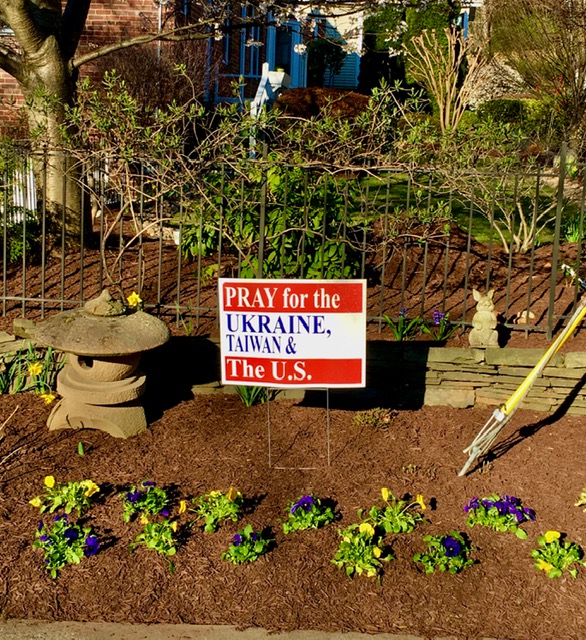Should credit unions be investing time and resources in the emerging virtual realities, especially crypto options?
One of Warren Buffett’s truisms is that: Only when the tide goes out do you discover who’s been swimming naked.
The Fed clearly intends to take the tide out. Coming rate increases will end the past two years’ historically low cost era of finance and restore “normal” rate levels to tame inflation.
Markets are now sorting out what valuations have been overpriced with cheap money. One of these newly created segments is the world of digital finance. Here’s Bloomberg’s comment on one area of cypto on April 25:
Bitcoin seems to be stuck in a rut: Prices are flagging, online searches for the largest cryptocurrency and other digital assets have fallen off, fewer and fewer coins are changing hands and crypto-related funds are seeing massive outflows.
An Assessment from the Digital Generation
I asked my computer science oriented grandson whether he or any of his online buddies were creating NFT’s as a way to make money in the virtual world. He said no. His reason was that this was virtual gambling. He had seen newly issued NFT’s bid up in price through anonymous (self-promoting) purchases, and then crash when there was no offers at the pumped up value.
However he does spend lots of time in the virtual world of games and other digital experiences.
Is the meta-omniverse a real business opportunity and if so, for what end? Is it a vast new world of entertainment, an ideological, semi-religious political response to real world problems, or a temporary stage in the evolution of a parallel reality?
Two recent articles have examined both the hype and the opportunity aspects of this emerging financial sector. An internet writer Ginsberg has compared the crypto hype to a religious craze in an April 22 post: Is Crypto Just a Religion for Online Gambling. Selected excerpts follow:
Crypto is no longer just computer nerds talking mumbo jumbo about decentralization & “the blockchain” at conferences that everyone kicks themselves for not paying attention to earlier — it’s a fully-fledged, multi-trillion dollar industry, complete with mainstream media coverage and millions of people arguing about it on Twitter.
While the fan boys call crypto the “future of finance”, its critics denounce it as a giant Ponzi scheme. In short, I believe they’re both wrong.
To me, cryptocurrency seems to be something more like an internet-based religion, mixed in with technical gambling (“trading”), all wrapped up in a strange cyberpunk economy of value, which is ultimately being capitalized on by speculators as a way to make absurd amounts of money. . .
People are constantly zapped by these seemingly mythological statements that constantly obfuscate the fact that very little real world utility is being created in the world of cryptocurrency.
Right now, the total crypto market is currently worth a mind boggling $1.85 trillion, and world-leading financial institutions continue to throw more money into crypto with each passing day. . .
From what I can see, almost all large institutional involvement comes from FOMO more than it does from an actual investment strategy.
Matt Comyn, the CEO of Commonwealth Bank, Australia’s largest financial institution said it best:
“We see risks in participating, but we see bigger risks in not participating.”
Ginsberg’s conclusion: Unless a crypto asset solves a measurable, real-world problem —it’s probably just another delusion peddled by a self-serving preacher in this strange, ever-growing digital religion.
A “Real” Business Opportunity?
Gonzo Banker’s Ron Shevlin posted a column about lending in the metaverse: Entrepreneurial bankers have a chance to establish themselves as commercial metaverse lenders. Excerpts:
Claiming to be the first bank in the metaverse, JPMorgan announced the opening of a “lounge” in Decentraland. Upon entering the lounge—which was established by Onyx, the bank’s blockchain unit—visitors are greeted by a digital portrait of Jamie Dimon (which morphs into the image of the bank’s head of crypto) and a roaming tiger.
“Virtual branches are the next logical step for how financial institutions can utilize virtual reality. Imagine never having to take a break during working hours and wait in a line at the bank. Now imagine getting personalized banking service at the comfort of your home, when it’s convenient for you while enjoying a cup of coffee.”
The two largest virtual worlds—The Sandbox and Decentraland—saw 86,000 virtual property transactions totaling $460 million in sales in 2021.
“Supply and demand dynamics are driving people into the meta-economy. Over time, the market for metaverse real estate could evolve in a similar way as the real estate market in the analog world. In time, the virtual real estate market could start seeing services much like in the physical world, including credit, mortgages, and rental agreements.”
The success of building and scaling in the metaverse is dependent on having a robust and flexible financial ecosystem that will allow users to seamlessly connect between the physical and virtual worlds.”
The Final Word
I give Warren Buffett the last word: “Never invest in a business you cannot understand.”




